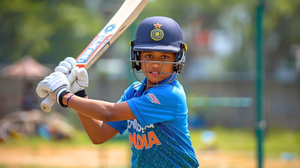India's hot summers seem to be getting even more intense, with heatwaves lasting longer and temperatures soaring past 45°C in many regions. For expecting mothers, these extreme conditions pose serious health risks that go well beyond discomfort.
Studies find that high exposure to severe heat during pregnancy raises the risk of severe maternal morbidity by 27%, and risks rise by 2.39-fold during extreme heatwaves..
Understanding pregnancy heatwave tips in India and recognizing dehydration in pregnancy during the summer are essential for protecting both mother and baby during these challenging months.
Understanding Heat Sensitivity During Pregnancy
During pregnancy, your body naturally warms up a bit more because of increased metabolic activity, causing the core temperature to go up by 0.5-1°C above normal. Hormones play a key role here, especially higher levels of progesterone and the increased blood volume, which help your body manage temperature changes.
Keep in mind, pregnant bodies take about twice as long to cool down after hot exposure, so staying safe in the heat is especially important.
The timing of heat exposure is a significant factor in fetal development. First-trimester heat exposure is linked to congenital anomalies, while third-trimester exposure associates with preterm birth and stillbirth. Research demonstrates that stillbirths increase by 1.05-fold per 1°C rise in temperature.
Early Warning Signs of Dehydration During Pregnancy
Recognizing dehydration in pregnancy during the summer early can prevent serious complications. Common initial symptoms include increased thirst, dry mouth and lips, dark yellow urine with infrequent urination, persistent fatigue, dizziness, headaches, and rapid heartbeat.
Doctors explain that these symptoms should never be ignored, as dehydration directly impacts amniotic fluid production and placental function.
Severe dehydration may cause life-threatening complications. Dehydration results in low amniotic fluid levels (oligohydramnios) that can initiate preterm labor and contractions.
Research indicates that pregnancy dehydration profoundly influences birth weight and gestational length. Additionally, neural tube defects, congenital malformations, pre-eclampsia, and gestational diabetes are all predisposed by severe dehydration.
Essential Hydration Guidelines for Expectant Mothers
- Proper hydration is essential for managing dehydration during pregnancy in the summer.
- Pregnant women should aim to drink at least 8-12 glasses (2-3 liters) of water daily.
- Increase water intake during hot weather and physical activity.
- Don't wait for thirst to signal dehydration; stay proactive.
- Carry a water bottle everywhere and set hourly reminders to drink.
- Consume hydrating foods such as watermelon, muskmelon, pomegranate, grapes, and coconut water.
- Include vegetables such as cucumber, bottle gourd, ash gourd, and pumpkin for hydration.
- Traditional Indian coolers like coconut water, buttermilk (chaas), and fresh curd support health during pregnancy.
Regional Indian drinks, such as aam panna (a raw mango drink), sattu (a roasted gram flour drink), and jaljeera, are particularly beneficial during pregnancy. Ayurvedic wisdom recommends fennel, coriander seed, and mint waters for their cooling effects.
However, certain beverages should be avoided. Caffeine and aerated drinks actually increase dehydration. Excessive salt causes water retention and swelling. Spicy and fried foods increase internal body heat.
Maintaining Electrolytes for Mother and Baby
Understanding the electrolyte balance becomes essential while applying pregnancy heatwave tips in India.
Electrolytes are important for creating amniotic fluid and placental function. Research indicates that pregnancy naturally alters the body's sodium handling. The four key electrolytes—potassium, magnesium, calcium, and sodium must be kept in balance for the health of both mother and baby.
With the perfect ratio of potassium, sodium, and natural sugars, coconut water is nature's best electrolyte beverage. As directed by a physician, oral rehydration solution (ORS) can be taken, especially after diarrhea or vomiting. Electrolytes are also naturally found in foods like nuts (magnesium), yogurt (calcium), and bananas (potassium).
Warning signs of electrolyte imbalance require immediate medical attention. Muscle cramps and weakness often indicate a deficiency in potassium or magnesium. Persistent nausea and excessive vomiting (hyperemesis gravidarum) can severely disrupt electrolyte balance and may require IV fluid treatment.
Evidence-Based Cooling Methods for Summer Pregnancy
Here are some evidence-based methods to bring down the summer heat:
- Manage indoor temperature: 26-28°C (78-82°F); use room coolers, cross-ventilation, or sleep in left lateral position.
- Wear loose, light-colored cotton or linen; maternity wear for summer; supportive footwear.
- Use direct cooling: lukewarm showers, cold compresses on pulse points, misting, damp cloths.
- Stay indoors 10 AM-4 PM; use SPF 30+ sunscreen, hats, UV clothing outdoors; go out in cooler hours.
- Exercise: swimming, indoor workouts, early-morning or evening outdoor workouts, prenatal yoga in cool spaces.
- Never let body temperature reach 102°F (38.9°C).
Summer-Friendly Diet for Expectant Mothers
Nutritional strategies for managing dehydration in pregnancy during summer extend beyond drinking water. Light, regular meals maintain energy levels and prevent excess metabolic heat. Blending fruits such as watermelon, grapes, pomegranates, and sweet lime gives vitamins and water at the same time. Cucumber, tomato, and leafy green salads provide fiber and nutrients.
Typical Indian cooling foods include fresh curd, buttermilk, paneer, and coconut milk, which provide protein and calcium and naturally cool the digestive system. Soups and light broths at room temperature preserve nutrition when appetite is less.
Use less oil, ghee, and masalas, as these increase the internal heat. Fermented foods may become more acidic.
Warning Signs Requiring Immediate Attention
Some symptoms are signs of a medical emergency that needs immediate care. Stopping perspiration despite feeling extremely hot is the main indicator of heatstroke. Severe dizziness, fainting, or unconsciousness are signs of dangerous dehydration. Reduced fetal movement should never be disregarded.
Premature contractions or signs of preterm labor require urgent evaluation, as dehydration commonly triggers early labor. Severe headache combined with vision changes could indicate pre-eclampsia. Persistent vomiting that prevents fluid intake creates a dangerous dehydration cycle.
Regular prenatal check-ups become even more critical during the summer months. Keep emergency contact information readily available and understand hospital preparedness during heatwave alerts.
Takeaways: Protecting Your Summer Pregnancy Journey
Pregnancy in Indian summers calls for caution, forethought, and regular practice of pregnancy heatwave tips in India. Although heat can be a risk, being aware of the signs of dehydration in pregnancy during the summer months and adopting proactive cooling strategies helps most pregnant women bring their babies to term without adverse consequences. Staying hydrated, maintaining electrolyte balance, regulating indoor temperatures, dressing appropriately, carefully planning activities, and paying attention to body cues are the answers.
TheParentZ offers extensive pregnancy tracking features, health monitoring functions, and the ability to join an experienced community of parents who assist expecting moms with every dilemma. Remember, your body is working incredibly hard to grow a new life, giving it the extra care and protection it needs during summer heat is essential for both you and your baby's well-being.
Need personalized pregnancy tracking? Download the TheParentZ app to monitor your hydration, symptoms, and your baby's health daily. Visit www.theparentz.com
for expert pregnancy guides and community support from millions of Indian parents.
Frequently Asked Questions
1. How much water should pregnant women drink during Indian summers?
At least 10–12 glasses (2.5–3 L) daily, more during heat waves or physical activity. Pale-yellow urine means good hydration; dark yellow signals the need for more fluids.
2. Is coconut water safe during pregnancy?
Yes. It hydrates and replenishes electrolytes, but shouldn’t replace plain water. One to two glasses daily, along with water, is ideal.
3. Can dehydration cause miscarriage?
Severe dehydration can lead to complications such as miscarriage, preterm labour, low amniotic fluid, and restricted fetal growth. Increase fluid intake and seek medical help if symptoms persist.
4. Safest time to go outside in summer?
Before 10 AM or after 4 PM, when the heat is lower. Always carry water and use sun protection.
5. How to tell if you’re dehydrated?
Dark urine, thirst, dizziness, dry mouth or lips, fewer than 4–5 urinations, or reduced fetal movement indicate dehydration.
References
- https://jamanetwork.com/journals/jamanetworkopen/fullarticle/2809055
- https://www.cdc.gov/heat-health/hcp/clinical-overview/heat-and-pregnant-women.html
- https://www.nature.com/articles/s41591-024-03395-8
- https://pmc.ncbi.nlm.nih.gov/articles/PMC9300488/
- https://indianexpress.com/article/lifestyle/health/what-does-dehydration-during-pregnancy-look-like-signs-to-watch-out-for-9944830/
- https://pmc.ncbi.nlm.nih.gov/articles/PMC8411261/





Be the first one to comment on this story.